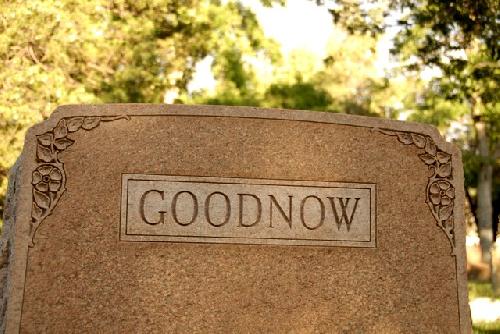“I have wasted my hours.” — Leonardo Da Vinci

Self-acceptance cannot be postponed until you feel you are good enough — until you have reached your ideal weight, idealized romantic relationship, or other images of success. Even if you achieved such things, you would need to keep the cyanide capsules close at hand because any of those things can be taken away.
When will you be good enough to accept yourself? Some people don’t accept themselves until they are on their deathbeds, and even at the end, many are filled with self-loathing and self-rejection. Just before he died, Da Vinci said, “I have offended God and mankind because my work did not reach the quality it should have.”
Perfectionists hold themselves to standards they would not apply to others. But such severe self-criticism usually undermines performance. Excessive self-criticism lowers morale and self-esteem, diminishing our enthusiasm for life and the energy and confidence we need to accomplish things.
Self-acceptance is not the same as narcissistic grandiosity—it is simply recognizing yourself for being alive, for continuing to deal with the rigors of human incarnation, and for whatever else you can accomplish beyond that. You may be doing better than you think. Forget the sterilizing severity of perfectionism; self-acceptance is necessary to your well-being, the core from which you can do things for yourself and others.
Self-acceptance can be a moment-to-moment struggle, one of the most difficult and courageous of life missions. Self-rejection is an enemy of almost infinite form with its myriad masks and moods and self-medicating, self-sabotaging seductions. But you are the only self you’re going to get, and self-acceptance needs to be at your core.
According to the I Ching, your primary obligation in life is to work on your relationship with yourself. Get that relationship right, and your relationships with others, the creative process, sex, time, money, body, career, collective, and cosmos will be as good as possible. But neglect or reject any part of that relationship, and your relationship with all those things will be accordingly diminished and distorted.
You do not need to be perfect to earn self-acceptance. Self-acceptance also means accepting your flaws, shortcomings, and mistakes. For example, I chose to revise this card today because I felt slightly disappointed in myself. I got a lot done yesterday, but at the end of the day, when research shows that willpower (an actual neurological resource) is at its lowest ebb for most, I spent time letting myself get distracted online (social media, etc.) as I tend to do during this weakest zone of the day many days. What I do during that time usually has some value, but not enough to justify blowing past the bedtime I need for my sleep cycle and morning writing sessions. The online stuff I tend to indulge in at the end of the day definitely has arousal addiction aspects, and I’ve resolved many times to get to bed instead. As a result of succumbing to it yet again, I got to sleep after midnight, which makes me more prone to insomnia and lower sleep quality. This is exactly what happened, and as a result, I’m slower and more distracted this morning. Feeling disappointed in myself is an appropriate feeling on this occasion. I need to do better with that tendency, and I can do better with it. But it wasn’t the crime of the century. And even if I had done the crime of the century last night, I would still need a degree of self-acceptance to keep going.
Here’s the example I use with myself to illustrate this. Suppose I hadn’t woken up in my bed this morning, but in an alley covered in my own vomit, memories slowly surfacing of having injected myself with fentanyl the previous evening, sharing dirty needles with other addicts I knew were HIV positive. Normally, I would never do something like that on a weekday, but let’s say I had. I’d be right to be disappointed in myself, but I would still need to accept myself, flaws and all, to keep going and make the best use of whatever was left of my life. There would still be actions I could take to help myself and others. What advice would you give to my alternate self waking up in the alley? Should I just stay in the alley hating on myself or accept myself as a flawed person and keep going?
Stop reaching for that shiny, new, perfected, hypothetical future self. Summon the courage to work with who you are and where you find yourself right now. Nothing is closer to your core than self-acceptance. Self-acceptance is like putting on your oxygen mask first in an airplane. It’s what you must do before you can do anything for others.
Consider this excerpt from the card “Self-Punishment”:

We are so often our own worst enemy, locking ourselves into humiliating habits of self-punishment and abuse. Don’t hold yourself up to standards and harsh self-criticism that you wouldn’t impose on another person you cared about.
Take the occurrence of this card as permission to forgive yourself. Don’t punish yourself for having punished yourself, we’ve all done it and it is easier to deal with than the fallout of punishing others. If you find that you are criticizing your past performance and saying I should have done this, I should have done that… Stop! Take a deep breath, and stop shoulding on yourself. Past is past, it does no good to punish yourself. Focus on being impeccable in the present.
See: Kill the Time Grid and Fire up Your Life
and Imagine Getting More
If you find that you are addicted to self-punishment you may want to read Rebelling from the Pain Body Matrix
 ZapOracle.com home to the free 720-card Zap Oracle
ZapOracle.com home to the free 720-card Zap Oracle






